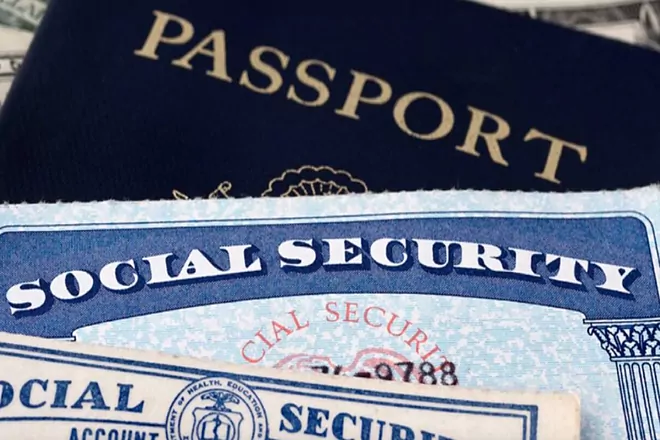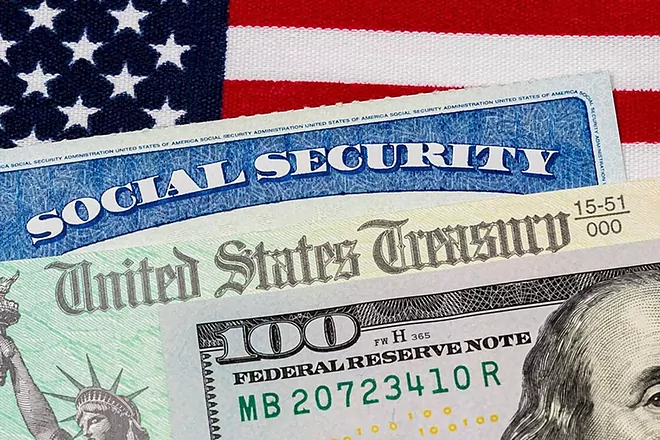- VA disability pay dates fall on the first business day of the following month.
- If that day is a weekend or holiday, payments are advanced to the prior business day.
- For late 2025, beneficiaries will receive two deposits each in October and December:
- September benefits → October 1
- October benefits → October 31
- November benefits → December 1
- December benefits → December 31
- Always verify payment info if your deposit doesn’t arrive and contact the VA if needed.
- With year-end expenses, planning around these shifts can prevent financial strain.

For millions of veterans and their families, VA disability compensation is more than a monthly payment — it’s financial stability, peace of mind, and a way to plan for the future. As the year winds down, knowing exactly when deposits will land is especially important, since the holiday season and year-end bills can create extra financial pressure.
The Department of Veterans Affairs (VA) follows a predictable pay schedule: disability compensation, pension, and dependency benefits are paid on the first business day of the following month. When that date falls on a weekend or federal holiday, payments are released on the last business day before.
With that rule in mind, let’s look at the official VA disability pay dates for the rest of 2025, why some months have quirks in the schedule, and what to do if your deposit doesn’t arrive on time.
VA Payment Schedule for the Rest of 2025
The VA has already disbursed benefits through August. That means the next deposit veterans will see is for September benefits, and here’s how the final stretch of the year plays out:
- September 2025 benefits → Paid Wednesday, October 1
- October 2025 benefits → Paid Friday, October 31
- November 2025 benefits → Paid Monday, December 1
- December 2025 benefits → Paid Wednesday, December 31
Notice the double payments in both October and December. That’s because the first business day of the following month either falls on a weekend or creates overlap with a holiday.
Why the Dates Shift
Here’s the underlying rule:
- Standard deposit: First business day of the next month
- If that day is a weekend/holiday: Deposit moves earlier
Example: September benefits
Normally, September benefits would pay on October 1 — and in 2025, that’s a Wednesday, so no problem. Veterans will receive that deposit right on time.
Example: October benefits
October benefits would usually hit on November 1. But November 1, 2025, is a Saturday. Federal payments can’t land on weekends, so the deposit moves back to Friday, October 31.
Example: November benefits
November benefits should arrive December 1. Luckily, December 1, 2025, is a Monday — a business day — so that deposit posts as scheduled.
Example: December benefits
December benefits would normally be paid on January 1, 2026. But New Year’s Day is a federal holiday. Instead, VA payments will be released Wednesday, December 31, 2025, giving beneficiaries their funds one day early.
This is why veterans will see two deposits in October and two deposits in December.
How These Dates Affect Veterans
For many households, VA disability payments cover essential needs:
- Rent or mortgage
- Utilities
- Groceries
- Transportation
- Medical costs not covered elsewhere
A shift of even a couple of days can disrupt bill due dates or budgeting plans, particularly for those on fixed incomes. That’s why understanding the payment calendar ahead of time is crucial.
Practical tip: If you know your VA payment will arrive on October 31 instead of November 1, you can schedule bills or automatic transfers accordingly. This prevents late fees and keeps your finances running smoothly.
What If You Don’t Receive Your Payment?
Delays are rare, but they can happen. Here’s the step-by-step process recommended by the VA:
- Check your bank first
- Sometimes deposits post later in the day.
- Online banking may update slower depending on your institution.
- Confirm your account info with VA
- Log into VA.gov or call to ensure your routing and account numbers are current.
- If you recently changed banks, make sure the VA has your updated details.
- Contact the VA
- Phone: Call 800-827-1000 (TTY: 711).
- Online: Submit a question through the Ask VA portal.
Be ready to provide your service details and banking information so the VA can quickly trace the payment.
VA Disability Payments Explained
To step back: VA disability compensation is a tax-free monthly benefit paid to veterans with service-connected disabilities. The amount depends on:
- Disability rating (0%–100%)
- Whether the veteran has dependents
- Cost-of-living adjustments (COLA) applied annually
The payments are designed to help offset income loss or medical expenses related to service-connected conditions.
In 2025, a veteran rated at 100% with no dependents receives over $3,700 per month, while those with dependents can receive significantly more. These payments are often combined with other benefits like VA pension, Dependency and Indemnity Compensation (DIC), and education stipends.
Planning Ahead: Budgeting for the Holidays
The last four months of the year can be financially intense:
- September & October: Back-to-school expenses and end-of-year bills.
- November & December: Thanksgiving, holiday travel, and gift purchases.
- January: Rent hikes, property tax payments, or post-holiday debt.
Because VA benefits arrive earlier than usual at the end of October and December, recipients have an opportunity to:
- Pay bills before the holiday rush
- Avoid short-term borrowing between months
- Allocate funds for holiday expenses without dipping into savings
A smart approach is to set aside part of the October 31 and December 31 deposits, since the next payment won’t come until a full month later. For example, December benefits arriving on December 31 will need to stretch until the next deposit on January 30, 2026.
Other VA Benefits to Keep in Mind
While disability compensation is the most common, the VA also disburses payments for:
- Dependency and Indemnity Compensation (DIC) for surviving spouses and dependents
- Special Monthly Compensation (SMC) for certain disabilities
- VA pension for wartime veterans with limited income
- Chapter 33 GI Bill benefits for education and housing stipends
All follow the same first-business-day rule for payments. If you receive multiple VA benefits, you’ll notice the same calendar shifts across the board.
Staying Informed
The VA encourages veterans to keep up with official updates through:
- VA.gov → payment schedules and account details
- Direct Deposit → faster, more secure than paper checks
- eBenefits portal → manage claims, benefits, and pay info online
By monitoring these resources, veterans can avoid surprises and plan budgets confidently.
The VA’s payment system is reliable, but the calendar quirks in 2025 make it important to stay alert. Knowing that deposits will come early in October and December allows veterans to plan bills, manage holiday budgets, and enter 2026 with fewer financial surprises.
For many veterans, disability compensation is more than a benefit — it’s a lifeline. By marking the dates now, you can ensure your finances stay steady through the final stretch of the year and into the new one.
VA Disability Pay Dates for 2026
Just like in 2025, the VA will follow its first business day of the next month rule in 2026. That means if the first falls on a weekend or federal holiday, payments shift to the prior business day.
Here’s the full 2026 VA payment schedule:
- January 2026 benefits → Friday, January 30, 2026
- February 2026 benefits → Monday, March 2, 2026
- March 2026 benefits → Wednesday, April 1, 2026
- April 2026 benefits → Friday, May 1, 2026
- May 2026 benefits → Monday, June 1, 2026
- June 2026 benefits → Wednesday, July 1, 2026
- July 2026 benefits → Friday, July 31, 2026
- August 2026 benefits → Tuesday, September 1, 2026
- September 2026 benefits → Thursday, October 1, 2026
- October 2026 benefits → Monday, November 2, 2026
- November 2026 benefits → Tuesday, December 1, 2026
- December 2026 benefits → Thursday, December 31, 2026
Notable quirks in 2026:
- January benefits arrive early, on January 30, since February 1 is a Sunday.
- October benefits don’t hit until November 2, because November 1 is a Sunday.
- Like 2025, veterans will receive two deposits in both July and December.
Why Planning Two Years Ahead Matters
Many veterans live on fixed incomes where even a slight change in payment timing affects bill schedules. By knowing the 2026 calendar now, you can:
- Set up automatic payments without overdraft risks.
- Schedule medical appointments, insurance premiums, or loan payments around deposit dates.
- Spread holiday spending to avoid running short before the next deposit.
Financial stability often comes down to predictability. With this schedule in hand, veterans and their families can move through 2025 and 2026 with fewer surprises.
| Benefit Month | 2025 Payment Date | 2026 Payment Date |
|---|---|---|
| January | Friday, Jan 31 | Friday, Jan 30 |
| February | Friday, Feb 28 | Monday, Mar 2 |
| March | Tuesday, Apr 1 | Wednesday, Apr 1 |
| April | Thursday, May 1 | Friday, May 1 |
| May | Monday, Jun 2 | Monday, Jun 1 |
| June | Tuesday, Jul 1 | Wednesday, Jul 1 |
| July | Thursday, Jul 31 | Friday, Jul 31 |
| August | Monday, Sep 1 → moved to Aug 29 | Tuesday, Sep 1 |
| September | Wednesday, Oct 1 | Thursday, Oct 1 |
| October | Friday, Oct 31 | Monday, Nov 2 |
| November | Monday, Dec 1 | Tuesday, Dec 1 |
| December | Wednesday, Dec 31 | Thursday, Dec 31 |
Notes:
- Dates marked with an asterisk (*) are adjusted for weekends/holidays.
- Payments are for the previous month’s benefits (e.g., “January benefits” are paid at the end of January or start of February).
How to Use This Calendar
- Budget planning: Mark these dates in your phone or physical calendar to sync with bill due dates.
- Holiday prep: Remember you’ll get two deposits in October and December 2025 — and again in July and December 2026.
- Avoid surprises: If a deposit doe






